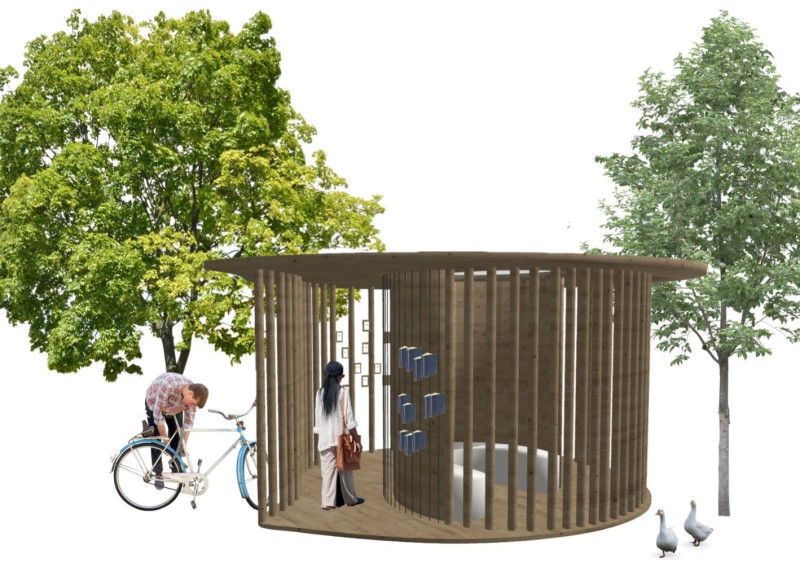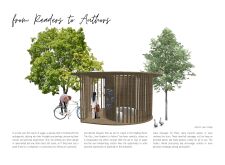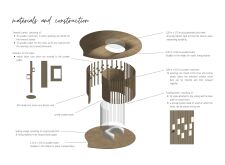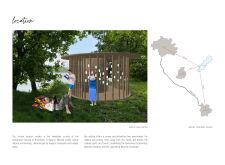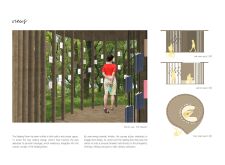5 key facts about this project
## Project Overview
"From Readers to Authors" is a Reading Room located near Simsee, close to Rosenheim in Bavaria, Germany. The project is designed to encapsulate themes of farewell and reflection within a literary context, taking advantage of the tranquil lakes and surrounding mountains. The intent is to create a space that encourages personal engagement with literature, fostering a connection between readers and fictional characters.
### Interactive Spatial Design
The architectural layout emphasizes both public interaction and private reflection. An open-sided design facilitates engagement with the natural environment while maintaining an intimate atmosphere. Key features include "farewell panels" made of wooden structures where visitors can attach handwritten notes to express their thoughts. This design promotes a sense of community and encourages deeper engagement with narratives, effectively merging the roles of readers and authors. The internal organization separates public areas from more secluded spaces, guiding visitors through an intuitive flow that reflects the narrative journey inherent in literature.
### Material Selection and Sustainability
The materials used in the construction reflect a commitment to sustainability and functionality. The framework consists of wooden round bars that partition spaces while allowing unobstructed views. Wooden plates provide surfaces for farewell notes, reinforcing the interactive aspect of the design. Transparent polycarbonate sheets facilitate natural light entry, ensuring durability for outdoor use. Curved wooden panels enhance the tactile quality of walls and seating areas, while recycled sailcloth is employed in lounge seating to underscore ecological priorities. Additionally, ropes are utilized for suspending decorative “floating books,” enhancing the interactive experience within the space. The combination of modular and custom elements in construction enables ease of assembly while ensuring structural integrity.


